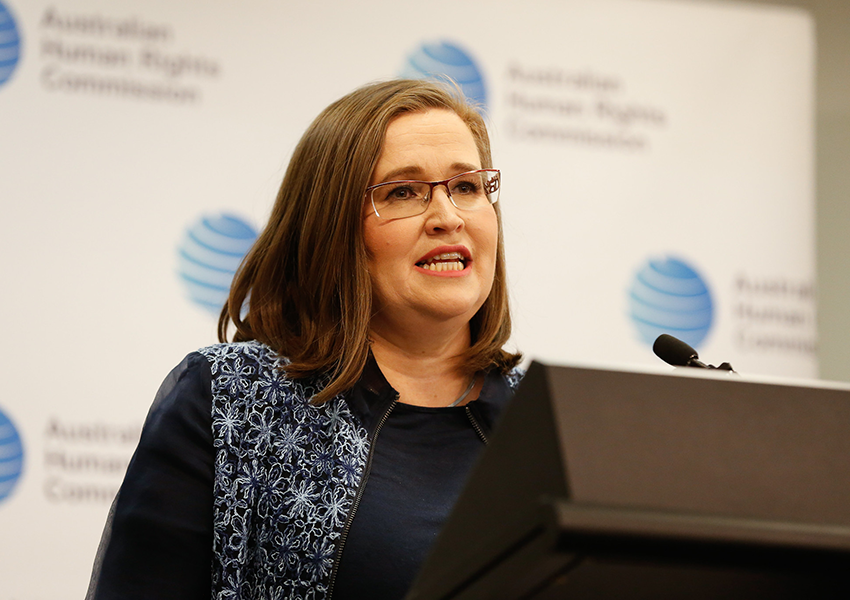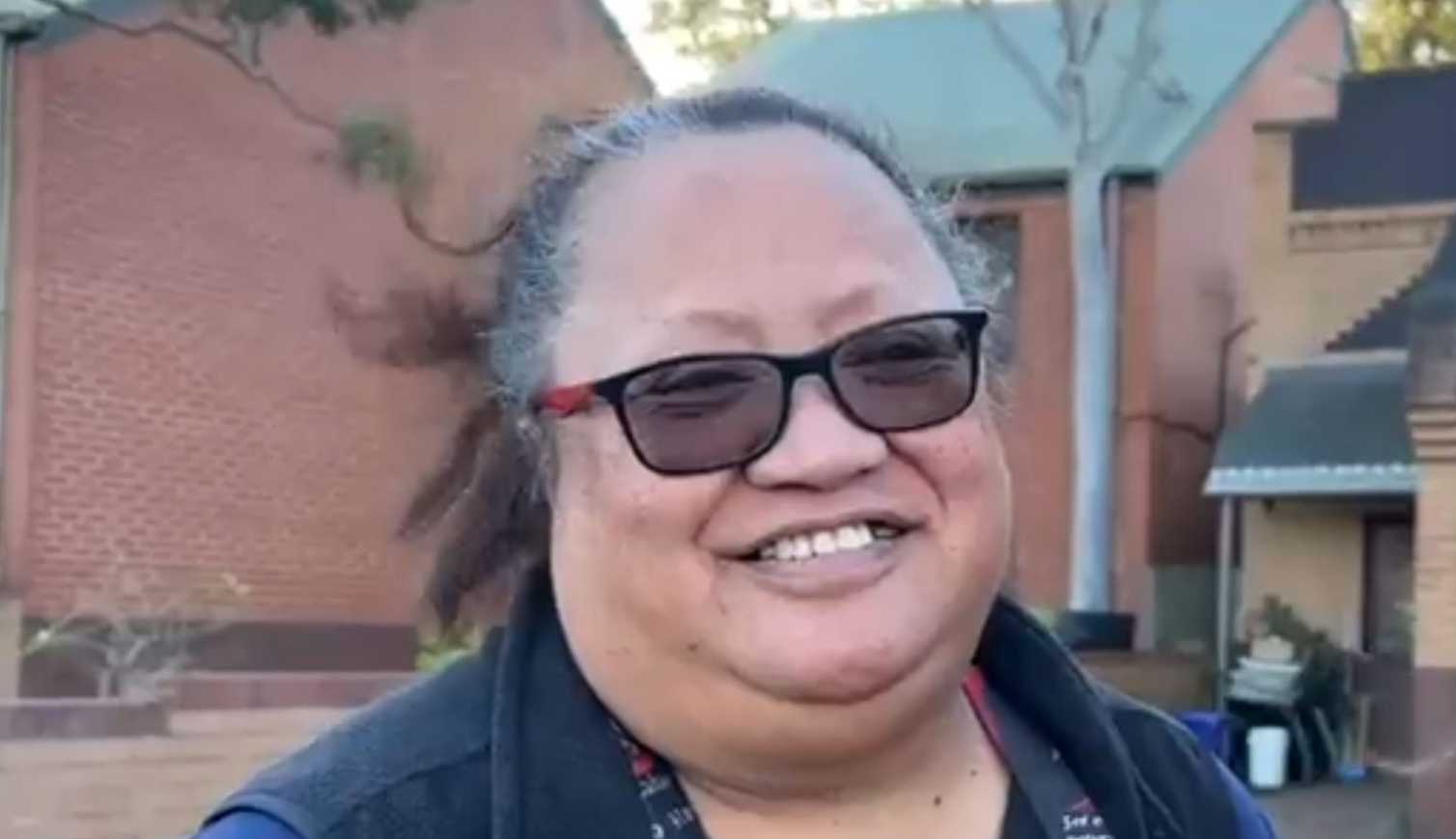
Willful ignorance is the only excuse for not addressing sexual harassment

Opinion by MERRILL WITT
The #NotJustADaughter hashtag started trending on Twitter shortly after the Prime Minister, Scott Morrison, explained at a press conference on February 16th that his decision to call for an independent inquiry into the Australian parliament’s workplace practices was informed by his wife’s advice to ‘imagine how he would respond if Brittany Higgins, the Liberal Party staffer allegedly raped by a colleague, was one of his daughters.
Australian of the Year, the inspirational sexual abuse survivor Grace Tame, succinctly zeroed in on the prevailing mood when asked to respond to Mr. Morrison’s rhetoric after her extraordinarily moving and insightful National Press Club of Australia address last week.
She said, “it shouldn’t take having children to have a conscience” and then paused before poignantly adding, “and, actually, on top of that, having children doesn’t guarantee a conscience.”
Ms. Tame’s response to another question about the current political crisis engulfing Canberra, which has only deepened as a result of Attorney-General Christian Porter’s recent strenuous denial of a historical rape allegation, was equally damning:
“Cover-up culture, the abuse of power, is not unique to Parliament,” she said. “It happens everywhere.”
Indeed. Even a casual read of the Respect@Work: Sexual Harassment National Inquiry Report, handed to the Morrison government by Sex Discrimination Commissioner Kate Jenkins exactly one year ago this month, suggests that Canberra’s sexual abuse scandals were entirely predictable.
In the foreword to this landmark report, Commissioner Jenkins explains that the Australian Human Rights Commission’s most recent 2018 survey on the national experience of sexual harassment “showed that sexual harassment in Australian workplaces is widespread and pervasive. One in three people experienced sexual harassment at work in the past five years.”
She laments that “Australia was once at the forefront of tackling sexual harassment globally…However, over 35 years on, the rate of change has been disappointingly slow. Australia now lags behind other countries in preventing and responding to sexual harassment.”
Not surprisingly, the Respect@Work report places most of the blame on the chronic problem of sex discrimination.
“Overwhelmingly, the Commission heard that gender inequality was the key power disparity that drives sexual harassment,” defining it as “the unequal distribution of power, resources and opportunity between men and women in society, due to prevailing societal norms and structures.”
Leaders’ long history of stereotyping
Many women are old enough to remember our collective outrage in 2010 when the then Leader of the Opposition, Tony Abbott, invoked a gender stereotype to stir up anxiety about the impact of Labor’s carbon tax on the family budget.
“What the housewives of Australia need to understand as they do the ironing,” he said, “is that their own power bills when they switch the iron on, are going to go up.”
But while the former prime minister was rightly pilloried for his sexist remarks, he wasn’t wrong to infer that women, whether they work in or out of the home, are disproportionately responsible for most of the household chores.
And, unfortunately, recent events have only served to highlight that Mr Abbott’s contemporaneous description of a woman’s virginity as “the greatest gift” she can give someone was not only unforgivably sexist but shockingly naive in its assessment of the power imbalances between men and women.
Hundreds of testimonies collected by former Kambala student Chanel Contos, in support of her recent petition calling for better school-based education about consent, attest to the fact that far too many young men feel entitled to sexually harass young women and don’t think twice about stealing her “greatest gift.”
A safe and supportive environment needed
Just as Ms. Contos’s petition provided a safe and respectful space for mainly women to share for the first time their shocking accounts of sexual assault, the Respect@Work report noted that a “recurring theme that arose throughout the Inquiry was that, for many victims, this was the first time they had told anyone about their experiences.”
“Given the profound and often devastating impacts on people affected by workplace sexual harassment,” the report continued, “the Commission heard that the Inquiry process allowed people to feel listened to and to have their experiences acknowledged.”
Perhaps this tragic state of affairs could be arrested or even reversed if the Prime Minister announced tomorrow that he would implement every one of the 55 excellent recommendations made in the comprehensive Respect@Work report.
Not only would taking this approach go some way to remedying a glaring hole in the leadership response to date, but it would also likely set in motion a series of changes that could help to end this shameful crisis.
A societal issue
The Respect@Work report paints a bleak picture of the impact of workplace sexual harassment in our society.
“Australians, across the country, are suffering the financial, social, emotional, physical and psychological harm associated with sexual harassment. This is particularly so for women,” it states.
In economic terms, the ongoing financial burden of workplace sexual harassment is staggering. The report estimates that the cost to the Australian economy was approximately $3.8 billion in 2018 alone.
The urgency of addressing the current situation cannot be overemphasised, with Commissioner Jenkins declaring that “the current legal and regulatory system is no longer fit for purpose.”
Consequently, the collective intent of the report’s 55 recommendations is a major overhaul of how workplace sexual harassment is handled, leading to the creation of “a new model that improves the coordination, consistency and clarity between the anti-discrimination, employment and work health and safety legislative schemes.”
Legislative reforms required
While overall ambitious in purpose, individually the recommendations don’t seem particularly controversial, onerous of too expensive to implement.
With respect to the Sex Discrimination Act 1984, for example, the report recommends that the objects of the Act acknowledge that “to achieve substantive equality between women and men, sex-based harassment is expressly prohibited.”
It calls for an expansion of the definition of ‘workplace participant’ and ‘workplace’ to cover “all persons in the world of work, including paid and unpaid workers, and those who are self-employed,” and also recommends that the “current exemption of state public servants is removed.”
Importantly, the report proposes shifting the onus of compliance away from a reliance on victims making a complaint to “a positive duty on all employers to take reasonable and proportionate measures to eliminate sex discrimination, sexual harassment and victimisation, as far as possible.”
This reform would be strengthened by ‘Recommendation 18’, which would give the Commission “the function of assessing compliance with positive duty, and for enforcement.”
To complement the strengthening of the Sex Discrimination Act, the report wants to see the Fair Work Act 2009 amended to introduce a ‘stop sexual harassment order’ equivalent to its ‘stop bullying order’ and “to clarify that sexual harassment can be conduct amounting to a valid reason for dismissal by “updating the definition of ‘serious misconduct’ to include sexual harassment.”
Especially in light of Ms. Contos’s current petition, the report presciently addresses the need for better and earlier education, calling for “all Australian governments to ensure children and young people receive school-based respectful relationships education that is age-appropriate, evidence-based and addresses the drivers of gender-based violence, including sexual harassment.”
In her interview on Sunday with ABC’s Insiders host David Speers, Commissioner Jenkins tempered her criticism of the federal government’s slow response to implementing her recommendations, noting that the release of the Respect@Work report coincided with the beginning COVID-19 pandemic, an event that sidelined consideration of many important matters on the legislative agenda.
But as the Guardian’s Katharine Murphy recently highlighted in her article, “Canberra’s pale, stale and male tribe is missing the moment – as it did with Julia Gillard’s misogyny speech” (6 March 2021), the Morrison government is now facing “a cultural and societal reckoning, not a political problem to be massaged with sporadic damage control.”
Fortunately, Commissioner Jenkins has already provided the federal government with an excellent blueprint for moving forward without delay.
If her report’s recommendations are adopted in full, they will go a long way to ensuring that, in her words, “workplace sexual harassment is not inevitable. It is not acceptable. It is preventable.”









